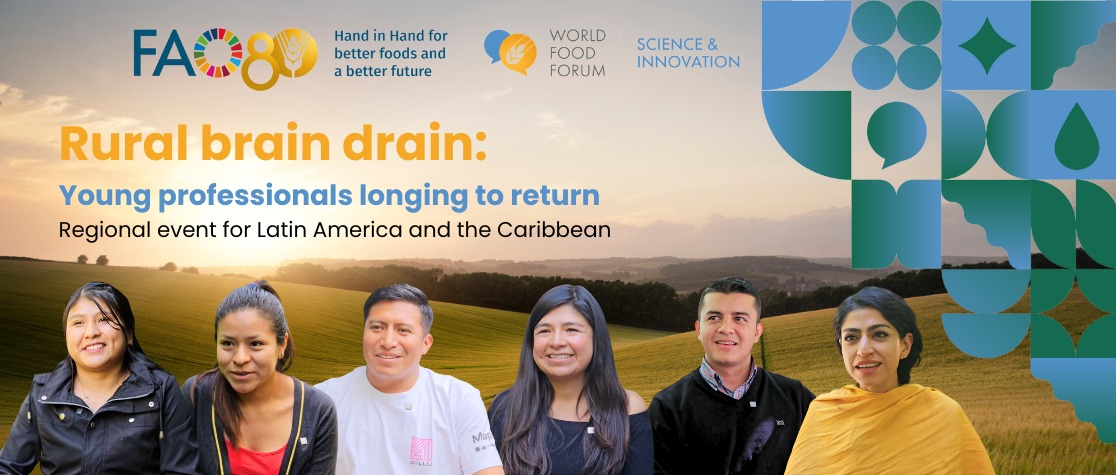Regional Event of FAO Science and Innovation Forum 2025 for Latin America and the Caribbean
Rural Brain Drain: Young Professionals Longing to Return
Virtual Event, 31/07/2025

Live Broadcast
Background
In Latin America and the Caribbean, thousands of young people from rural backgrounds leave their communities in pursuit of higher education. Most do so with no intention of returning. However, a significant —and until now underrecognized— segment studies with the dream of coming back, driven by the desire to transform their communities. This event focuses on this type of “brain drain”: young people with rural roots, scientific training, and a deep commitment to serve their communities as local technology leaders.
A new study, based on nearly 3,000 applications to FAO’s Ayllu AgTech innovation program, brings visibility to these young people and reveals a strategic opportunity for rural transformation that has not yet been acknowledged. Just as many governments promote the return of talent trained abroad, they should also consider mechanisms to facilitate the internal return of rural youth with higher education.
The event, structured as a dialogue with the authors of the study and a young ambassador from the Ayllu AgTech program, invites reflection on how this rural brain drain —with the right support to facilitate their return as technology leaders— could become a strategic resource for rural transformation. It is addressed to national and local governments, cooperation agencies, foundations, and other stakeholders interested in rural development through science and innovation.
This regional session aims to contribute to the vision of SIF 2025, exploring a pathway of transformative cooperation where science, local knowledge, and youth engagement come together in concrete ways to advance toward better food and a better future. Rural youth represent the new generation called to lead the improvement of food systems from within their territories, bringing a fresh perspective, technical training, and strong community ties. Their digital and social connectivity to the world allows them to access innovation and mobilize it to generate direct impact in their communities, positioning them as key actors to transform tomorrow’s agrifood systems.
Additionally, this proposal aligns with the principles of FAO’s Science and Innovation Strategy, particularly by placing underrepresented actors such as rural youth at the center. The approach combines evidence, sustainability, territorial relevance, and equity, seeking high-impact practical solutions from a systemic transformation perspective.
Objectives
- Poverty and technological gap in rural communities: The home communities of these young people are among the poorest and most vulnerable in the region, facing deep gaps in access to innovation and technology.
- Rural brain drain: Although rural youth migration is often associated with the search for low-skilled jobs, this phenomenon highlights the departure of young people with high academic potential who migrate to pursue higher education, and whose transformative talent remains invisible and underutilized.
- Opportunity for rural transformation: The potential of investing in this “lost” talent is made visible — as agents of change capable of driving development and closing gaps within their own rural communities.
